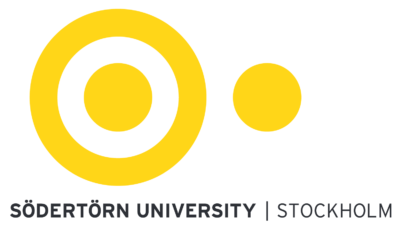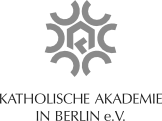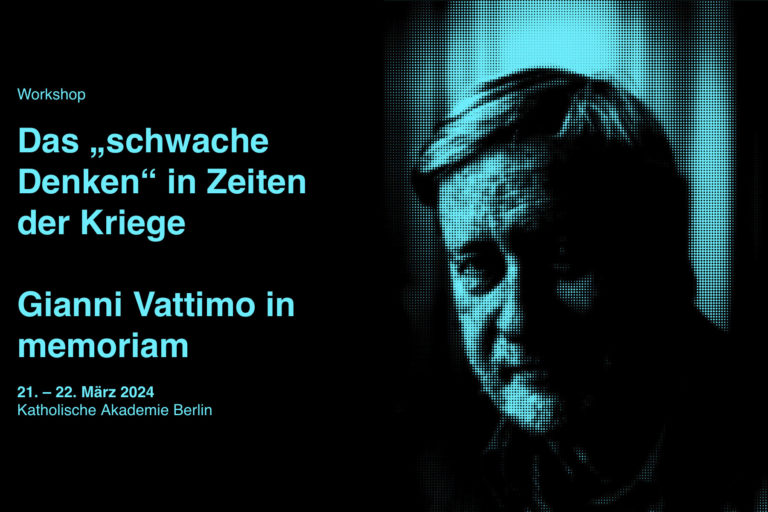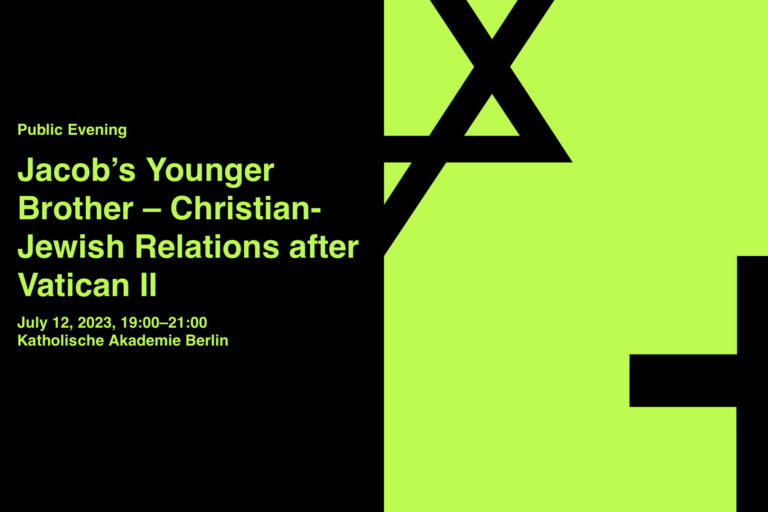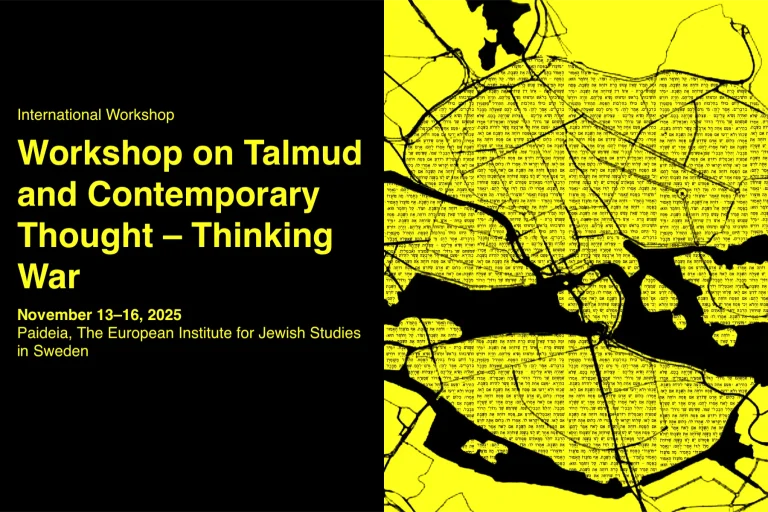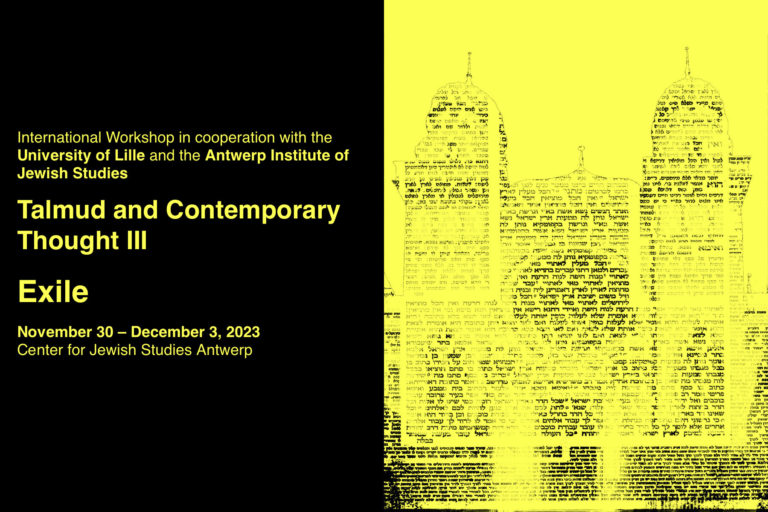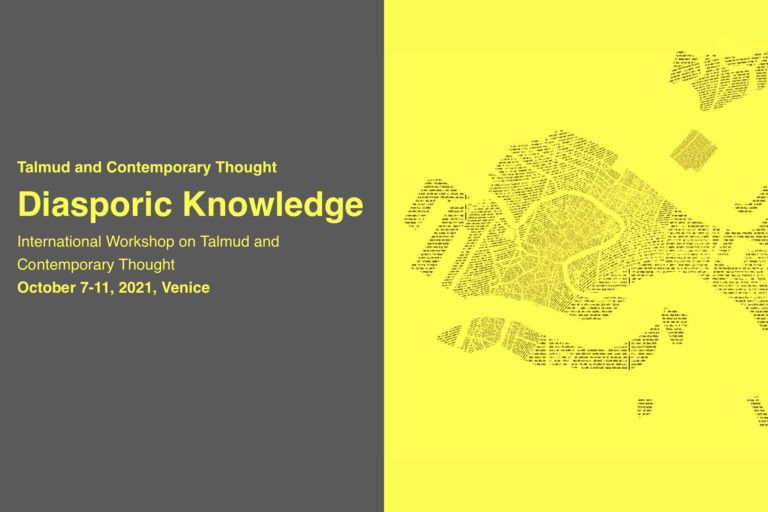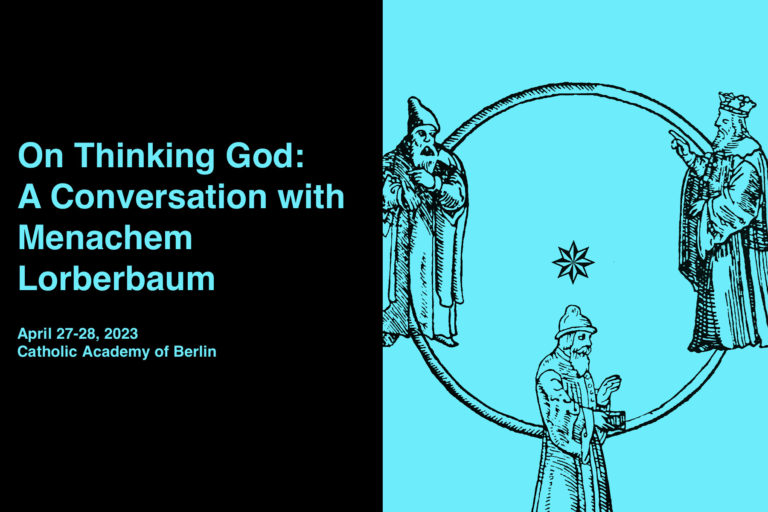Oded Schechter, Elchanan Reiner, Jayne Svenungsson, Daniel Boyarin and Elad Lapidot
Winter School:
Modern Talmudic Hermeneutics IV
Katholische Akademie Berlin in cooperation with the University of Lille and Södertörn University
December 10–12, 2024
Photo: Wikimedia PDM 1.0
Winter School: Modern Talmudic Hermeneutics IV
Oded Schechter, Elchanan Reiner, Jayne Svenungsson, Daniel Boyarin and Elad Lapidot
December 10–12, 2024
The winter school on modern talmudic hermeneutics will be led by two main instructors through guided readings in primary sources, Elchanan Reiner (Tel Aviv University, emer.) and Oded Schechter (Makhloykes Berlin), with a guest class by Daniel Boyarin (University of Berkeley).
This year’s winter school will be dedicated to the Gaon Rabbi Elijah ben Solomon Zalman of Vilna. We will examine the renewed articulation of the hermeneutical question by the Gaon in relation to Talmudic interpretation, rabbinic literature, the place of the text in society, the significant shift in the learning culture from then on, which were all connected to the figure of the Gaon of Vilna and his hermeneutic thought, and the moment of the appearance of the Lithuanian yeshiva in Jewish learning.
Additional activities will include classes on rabbinic literature and modern thought by Jayne Svenungsson (Lund University) and Elad Lapidot (University of Lille), small group study sessions, open discussion and presentations of participants’ research projects.
Discussions will be held in English, basic reading proficiency in Hebrew will be an advantage, but is not required.
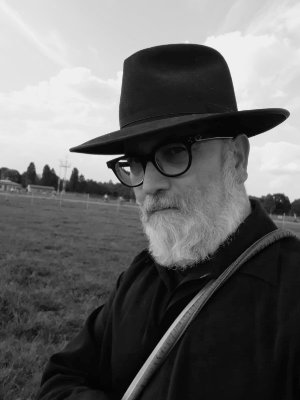
Oded Schechter is a philosopher and talmudist. He lives in Berlin and is the co-founder of the Berlin Makhloykes Center.
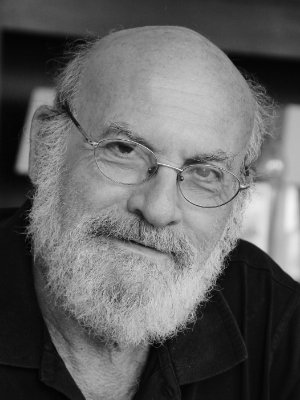
Elchanan Reiner was born in Jerusalem in 1946, he is Professor Emeritus of Jewish History at Tel Aviv University. Since 2016 he is the academic director of the National Library of Israel.
His main field of research is the cultural history of Ashkenazi, especially Eastern European Jewry in the Early Modern Period. In his research he is focusing on the beginning of the printed culture in the Ashkenazi milieu, the history of the Hebrew book and the history of the Early Modern Yeshivot and scholarship (“Lamdanut“). Among his publications concerning this field is “The Yeshivas of Poland and Ashkenaz During the Sixteenth and Seventeenth Centuries – Historical Developments,” (Studies in Jewish Culture in Honor of Chone Shmeruk, Jerusalem, 1993); ”The Ashkenazi Élite at the Beginning of the Modern Era: Manuscript versus Printed Book,” in: Jews in Early Modern Poland (= Polin, 10), London 1997 and “Beyond the Realm of the Haskalah: Changing Learning Patterns in the Jewish Traditional Society,” in: Simon Dubnow Institute Yearbook, 6 (2007).
Reiner also specializes in the study of the oral religious culture of the late antiquity and medieval Jews in Palestine, dealing with local religious traditions and myths connected to holy places. His early work on pilgrimages to Palestine in the Middle Ages has been followed by related publications such as “From Joshua to Jesus: The Transformation of a Biblical Story to a Local Myth (A Chapter in the Religious Life of the Galilean Jew)” in: Sharing the Sacred: Religious Contacts and Conflicts in the Holy Land, Jerusalem 1998.
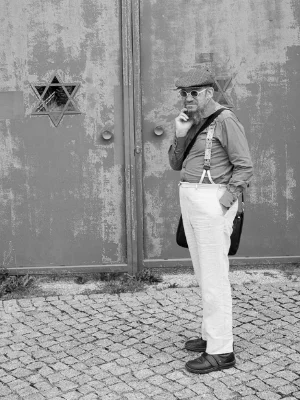
Prof. Daniel Boyarin is Taubman Professor of Talmudic Culture and rhetoric, UC Berkeley, ret. He has been an NEH Fellow (twice), a Guggenheim Fellow, a Fellow of the Institute for Advanced Studies in Jerusalem, a holder of the Berlin Prize at the American Academy in Berlin and a Ford Foundation Fellow. He spent the academic year 2012-2013 as a fellow of the Wissenschaft Kolleg in Berlin and was a von Humboldt Forschung Preisträgerat the FU Berlin in 2017. He is a fellow of the American Academy of Arts and Sciences since 2006.
Boyarin has written extensively on talmudic and midrashic studies, and his work has focused on cultural studies in rabbinic Judaism, including issues of gender and sexuality as well as research on the Jews as a colonized people, and lately, colonizing people. His most recent research interests centered primarily around questions of the relationship of Judaism and Christianity in late antiquity and the genealogy of the concepts of “religion” and “Judaism.” Lately he has been thinking extensively about diaspora as a political/cultural ideal. His most recent book is The No-State Solution: a Jewish Manifesto, Yale University Press, 2023.
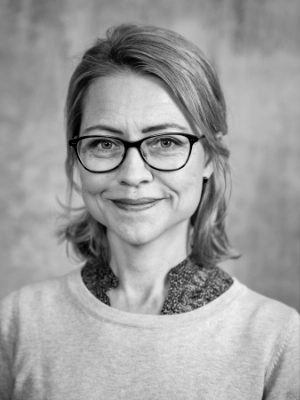
Jayne Svenungsson is Professor of Systematic Theology at Lund University in Sweden. Currently director of the multidisciplinary research program At the End of the World: A Transdisciplinary Approach to the Apocalyptic Imaginary in the Past and Present, (endoftheworld.lu.se) her research focusses on political theology and philosophy of history. She is author of Divining History: Prophetism, Messianism and the Development of the Spirit (Berghahn, 2016), and co-editor of Jewish Thought, Utopia and Revolution (Rodopi, 2014), Monument and Memory (LIT Verlag, 2015), Heidegger’s Black Notebooks and the Future of Theology (Palgrave, 2017) and The Ethos of History: Time and Responsibility (Berghahn, 2018).
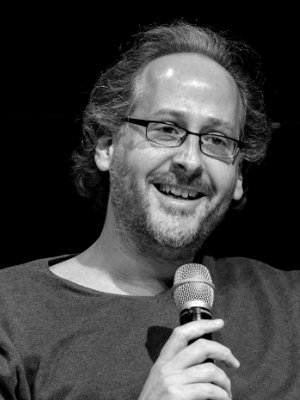
© Ruthe-Zuntz
Elad Lapidot is professor for Culture Studies at the University of Lille, France. He specializes in philosophy, Jewish thought and Talmud and was teaching at the University of Bern, Switzerland, the Humboldt Universität Berlin and the Freie Universität Berlin. His work is guided by questions concerning the relation between knowledge and politics. Among his publications: Jews Out of the Question. A Critique of Anti-Anti-Semitism (SUNY Press, 2020), Hebrew translation with introduction and commentary of Hegel’s Phänomenologie des Geistes, Vol. 1 (Resling, 2020), Heidegger and Jewish Thought. Difficult Others, (Rowman & Littlefield, 2018), and Etre sans mot dire : La logiqe de ‘Sein und Zeit’ (Zeta Books, 2010).
Participants
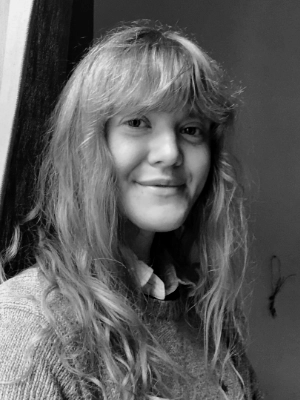
Sophie Bäärnhielm Pousette is currently pursuing doctoral studies in philosophy at Södertörns Högskola, Stockholm (Sweden), where she is a participant in the project ‘Experimenting with Tradition: The Life and Afterlife of 20th Century Jewish Intellectual Culture in the Baltic Sea Region’, which examines the encounter between Rabbinic-Hassidic thought and German Enlightenment philosophy. Her research interests include political theology and non-statal variants of political form.
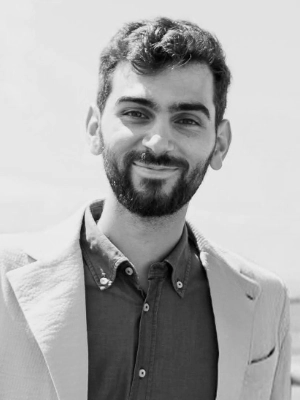
Davide Bizzini is a Ph.D. student at the Ben-Gurion Research Institute for the Study of Israel & Zionism of the Ben-Gurion University of the Negev. His research focus on the emergence of the ideas of peace (Shalom) and wholeness (Shlemut) in Jewish and Zionist thought between the end of the 19th and the beginning of the 20th century (circa 1880-1925), with a focus on Hebrew literature – including utopian novels, poems, journal articles and essays – and an interdisciplinary approach. He obtained his M.A. from the Department of Jewish Thought of the Hebrew University and his B.A. from Ca’ Foscari University of Venice. He was born and grew up in Italy and currently lives in Israel.
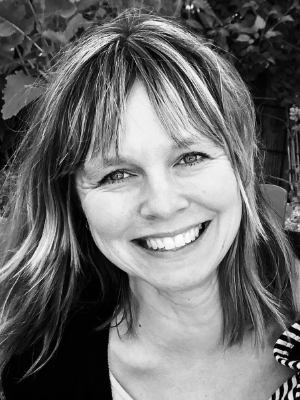
Ulrika Björk (b. 1970) is a senior lecturer in philosophy at Södertörn University in Stockholm. She received her doctorate at Helsinki University in 2009 with a dissertation on Simone de Beauvoir’s philosophical and literary investigations of subjectivity. Her research interests include phenomenology, existential philosophy, early 20th century Jewish thought, and feminist philosophy. Since 2024 is the head of the research project Experimenting with traditions: The Life and Afterlife of 20th Century Jewish Intellectual Culture in the Baltic Sea Region, funded by The Foundation for Baltic and East European Studies. Her current research within this project engages with Hannah Arendt’s problematization of tradition from the perspective of her Jewish writings.
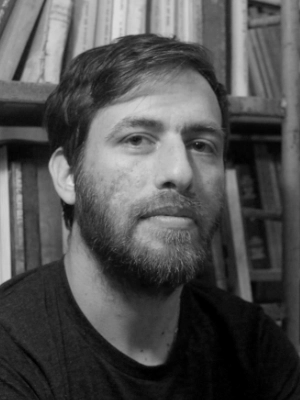
Dr. Roni Cohen is a Minerva postdoctoral fellow at Goethe University. His book titled “Carnival and Canon: Medieval Parodies for Purim,” is soon to be published via Magnes Press. Roni’s research focuses on European Jewish popular culture in the late Middle Ages and early modern period, as well as the relationships between textual pieces and communities. In his current project, “In Search of the Early Modern Earworm,” Roni maps and analyzes short textual pieces that were added by scribes and book owners in the margins of late medieval and early modern Jewish manuscripts.
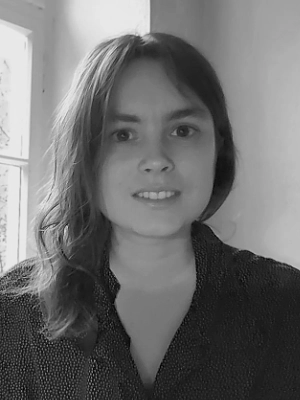
Dana Daymand is a research assistant at the chair for Jewish Studies at the University of Würzburg, where she teaches at the newly founded BA program in Diversity, Ethics, and Religions. Her academic interests revolve around philosophies of nature and Jewish receptions of Spinoza. She was trained in philosophy, political theory, and Jewish studies at Bard College Berlin, Tel Aviv University, Freie Universität Berlin, and the Hochschule für Jüdische Studien Heidelberg.
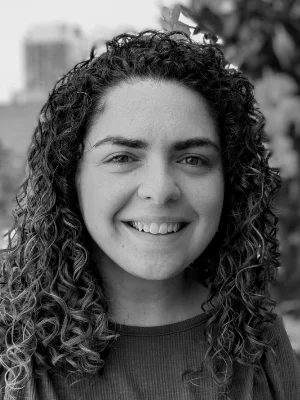
Sofia Freudenstein is a final year rabbinical student at Yeshivat Maharat in New York, the first rabbinical school to train women under the traditional semikhah curriculum. She is also a masters student in Jewish Philosophy at the Yeshiva University’s Bernard Revel Graduate School, and was a fellow at the Maimonides Center for Judaism and Skepticism at the University of Hamburg this past summer. Her interests in modern Jewish philosophy include studying the notion of obligation according to Martin Buber, Franz Rosenzweig, and Rabbi Abraham Joshua Heschel. Her interests in her rabbinic studies is meta-halakhah and the underpinning values in which rabbis make decisions within Jewish law.
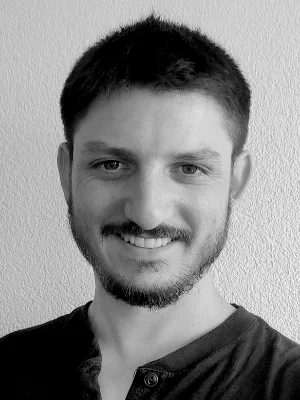
Josef Glanz is a PhD candidate at the Institute of Jewish Studies, University of Bern. He is writing his dissertation as part of the SNSF-funded research project “The Jewish and Christian Samuel: Connections, Demarcations, Entanglements”. He holds both a Master’s and a Bachelor’s degree from the Department of Jewish Philosophy and Talmud at Tel Aviv University.
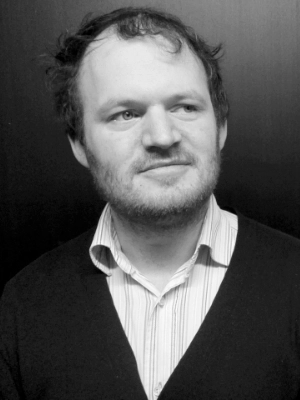
Stefan Goltzberg, Research Professor at the Université libre de Bruxelles (FNRS).
He published books on the sources of law (Les sources du droit, Que sais-je?? 3rd edition, 2024), comparative law (Le droit comparé, Que sais-je?, 2nd edition, 2024) and legal reasoning (L’argumentation juridique, Dalloz, 5th edition, 2024). His field of research is now comparative legal reasoning, including Talmudic law. Among his published papers:
“Three moments of Jewish philosophy”, 2011, “Is the Bible Fiction?” 2014 and “Le contournement de la loi est-il hypocrite ? Statut de la ruse dans la loi juive”, 2016.
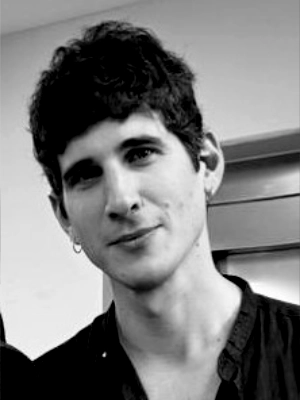
Matan Gurevitz is currently working on his doctorate thesis in Jewish intellectual and cultural history at the Martin Buber institute for Jewish Philosophy of Religion at the University of Frankfurt and at the University of Lille. He studied musicology and Jewish intellectual and cultural history at Humboldt University Berlin, Tel-Aviv University, the École des hautes études en sciences sociales (EHESS) in Paris, and Heidelberg University. He is a doctoral fellow of the Ernst Ludwig Ehrlich Studienwerk (ELES) and a member of the research group Revisiting Shared Traditions: Judaism and Islam in a Postsecular Perspective at the Van Leer Institute in Jerusalem.
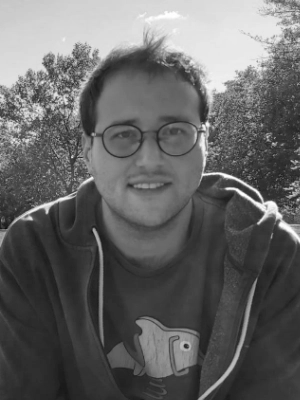
Etan Hirsh is a master’s student in comparative literature at the Hebrew University of Jerusalem. His areas of interest include ancient Greek literature and philosophy, political theology, and the Talmud. He is interested in considering the Talmud from a literary perspective and in relation to the history of literature, specifically regarding the juxtaposition of different genres in the text.
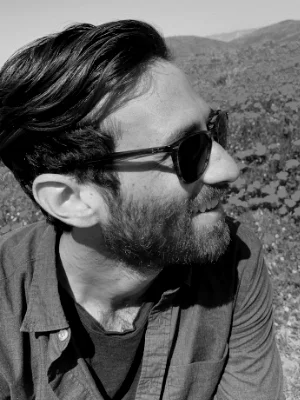
Jordan Spencer Jacobs is a Phd candidate in Religious Studies at the Universidad Complutense de Madrid focusing upon contemporary Jewish thought and dialogue, and has worked professionally in the fields of peacebuilding and restorative justice in public schools. A trained mediator, he holds an MA in Conflict Resolution and Coexistence from Brandeis University, and is currently a visiting researcher at the Center for Theology and Religious Studies at Lund University. His dissertation considers the role of mystery and (not) knowing in the interpersonal encounter, and parts from the thought of Abraham Joshua Heschel.
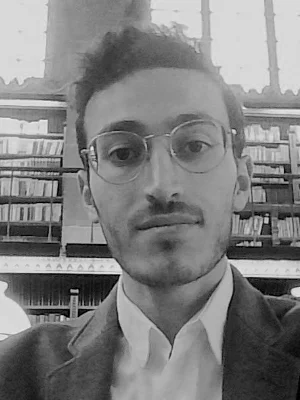
Aaron Lahmi, a former student of rabbinical schools (New York and Jerusalem), holds a master’s degree in Hebrew studies and a master’s degree in philosophy from Sorbonne University. Admitted to the “agrégation d’hébreu” competitive examination (session 2024), he is now a contract doctoral student at INALCO (Paris), where he is devoting his thesis to the “Guide for the Perplexed of our time” by Nachman Krochmal (Galicia, 1785-1840). His field of research lies at the confluence of rabbinic thought and modern philosophy.
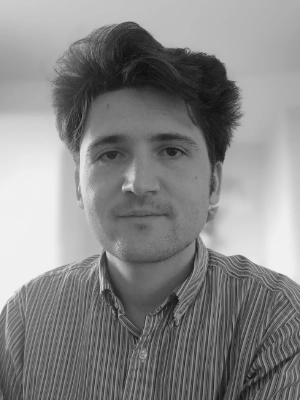
Valentin Marcos is an ELES scholarship holder at Hochschule für Jüdische Studien, and Heidelberg University, where he is doing an MA in Jewish Studies. His area of research is Romanian Jewish literature and theater. He was trained as a theater director at “George Enescu” University of Arts.
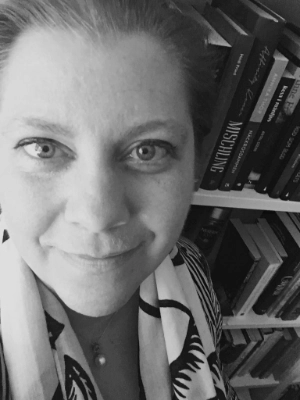
Malin Norrby is a Ph.D. student in The Study of Religion at Södertörns högskola, where she is a participant in the research project Experimenting with Tradition: The Life and Afterlife of 20th Century Jewish Intellectual Culture in the Baltic Sea Region. Her current research interest is the dissemination and reception of works by Jewish philosophers published as samizdat and tamizdat in post-war Eastern Europe. Malin has previously worked with the research project Traces of Yiddishkeit at Södertörns högskola.
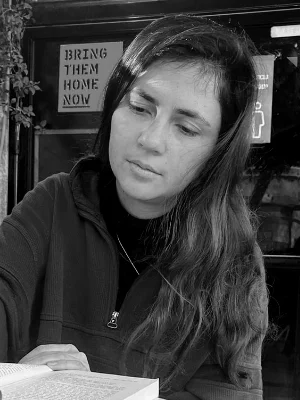
Michal Nutenko is a PhD student in the Department of Comparative Literature at Yale University. Her main areas of interest include Russian literature, German literature, and Jewish thought. Her interest in the Talmud was sparked and cultivated at the Beit Midrash of the Hebrew University of Jerusalem.
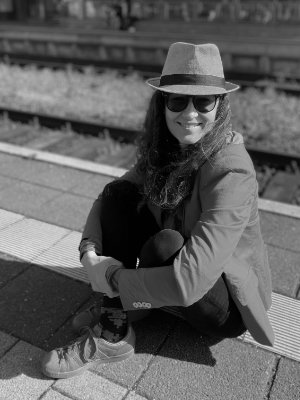
Ena Raphaëlle Oskar Schulz is an Academic Assistant at the Chair of Rabbinics at the Hochschule für Jüdische Studien in Heidelberg. She research revolves around the Tractate Avodah Zarah and the questions and experiences of borders, exclusion and inclusion.
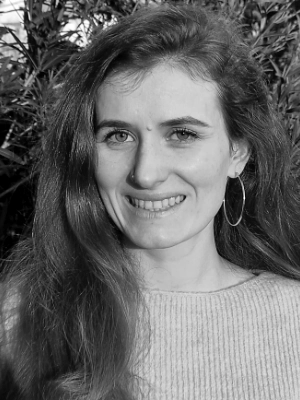
Julie Reich is a PhD candidate at the university of Lille under the supervision of Prof. Dr. Elad Lapidot. My research focusses on the mutual influences of feminism and Jewish Thought and the way gender conceptions influenced political Jewish philosophy in the context of pre-war Germany and post-war France. I am interested in religious philosophy, political philosophy, feminism, decolonial thought and concepts of citizenship in Jewish thought. Previously, I studied comparative literature and philosophy in Berlin, Madrid and Jerusalem. Additionally, I work as a freelance educator and language teacher.
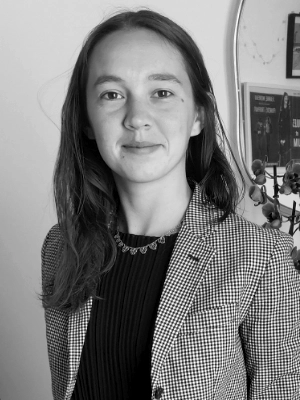
Lucile Salou is a PhD candidate in philosophy at the University of Lille and at the University of Paris-1. Her research centers on the philosopher Emmanuel Levinas. She focuses on how the Jewish thinker attempts to think history after the tragedies of the twentieth century seem to have broken its course. To this end, she is interested in the points of encounter between so-called “Greek” philosophy and Talmudic thought.
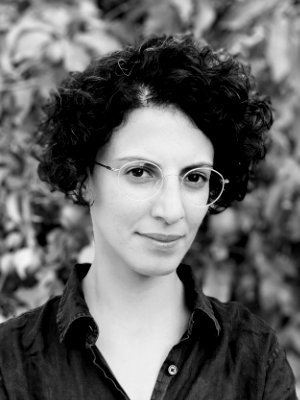
Bat Chen (Laila) Seri is a PhD candidate in philosophy of religion at the Centre for Theology and Religious Studies, Lund University. Her thesis project, titled In Search of Another Law: Three Talmudic Readings of Benjamin’s Kafka, applies rabbinic hermeneutics to reading Walter Benjamin’s essays on Kafka, aiming to uncover an implicit notion of law in Benjamin’s thought.
Program
| December 10 | |
| 9:00– 9:30 | Coffee |
| 9:30–10:00 | Greetings and Introduction |
| 10:00–11:30 | Session History Elchanan Reiner |
| 11:30–12:00 | Coffee Break |
| 12:00–13:30 | Session Philosophy Elad Lapidot |
| 13:30–14:30 | Lunch |
| 14:30–16:00 | Session Hermeneutics Oded Schechter |
| 16:00–16:30 | Coffee Break |
| 16:30–18:00 | Participant Project Presentations |
| Free evening |
| December 11 | |
| 10:00–11:30 | Session History Elchanan Reiner |
| 11:30–12:00 | Coffee Break |
| 12:00–13:30 | Session Hermeneutics Daniel Boyarin |
| 13:30–14:30 | Lunch |
| 14:30–16:00 | Session Hermeneutics Oded Schechter |
| 16:00–16:30 | Coffee Break |
| 16:30–18:00 | Open Discussion |
| 18:00–19:00 | Dinner |
| 19:00–20:30 | Public Lecture |
| Jayne Svenungsson, “The End of Law and Other Miracles” | |
| 20:30 | Reception |
| December 12 | |
| 10:00–11:30 | Session History Elchanan Reiner |
| 11:30–12:00 | Coffee Break |
| 12:00–13:30 | Session Philosophy Jayne Svenungsson |
| 13:30–14:30 | Lunch |
| 14:30–16:00 | Session Hermeneutics Oded Schechter |
| 16:00–16:30 | Coffee Break |
| 16:30–18:00 | Concluding Discussion |
| 19:00 | Dinner |




